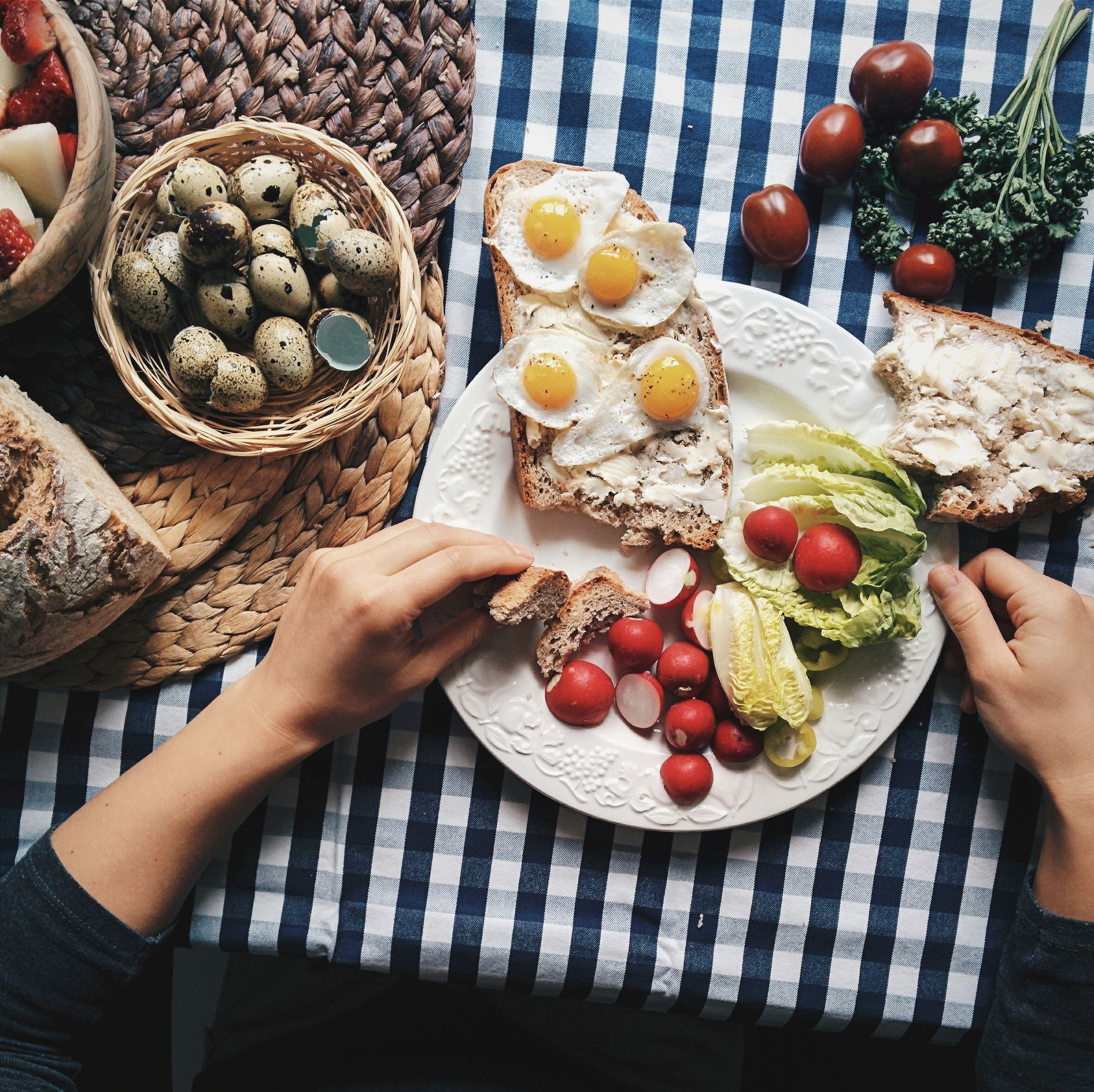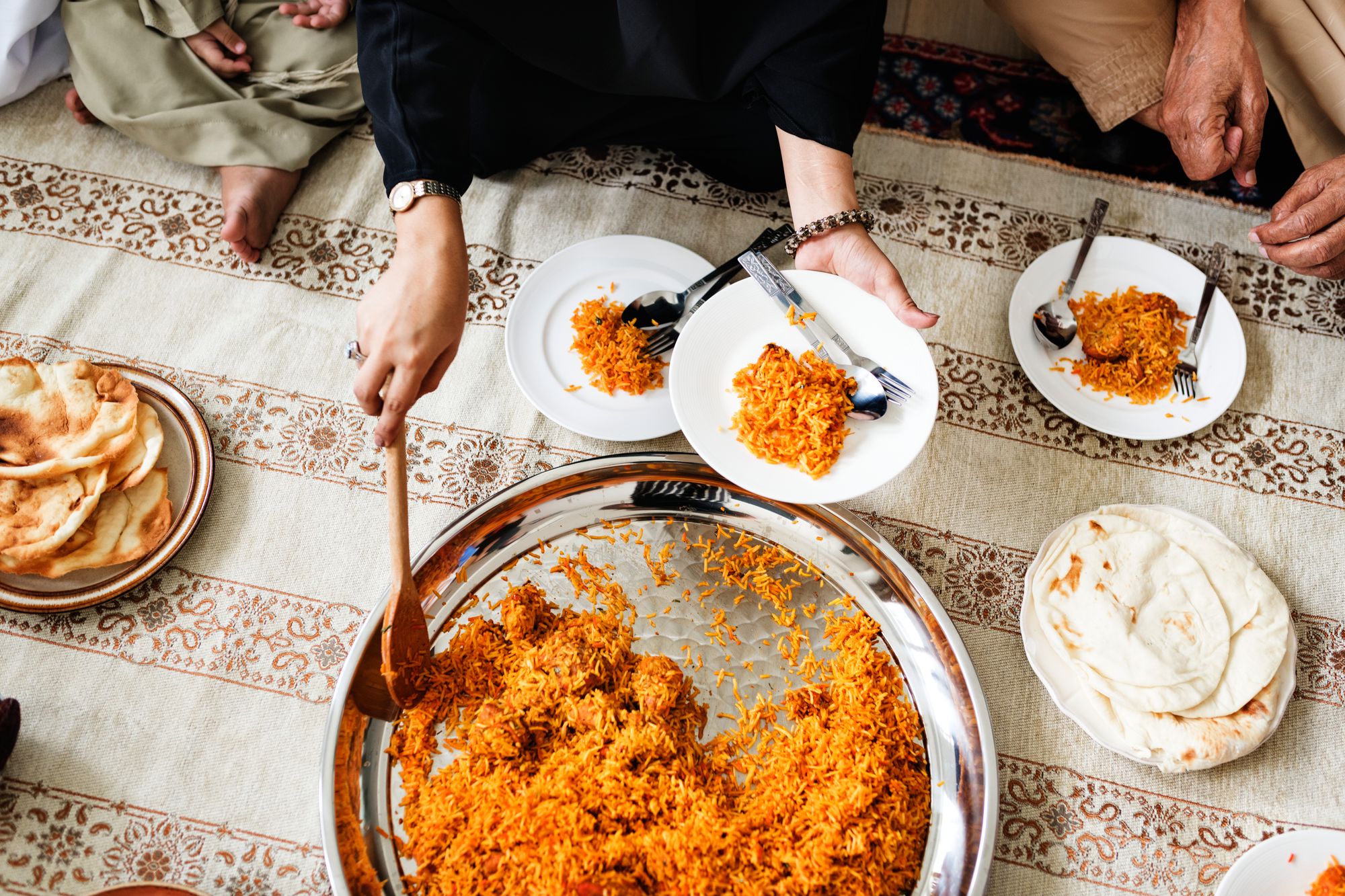From supporting our mental health to its impact on the planet, we look beyond food’s physical composition to see the different roles it plays in our lives
Whether you’re a foodie who loves trying multiple dishes at fancy restaurants, or someone who sees food as nothing but fuel, we all have one thing in common: we need to eat to survive. This simple fact makes food an integral part of our lives. But, 'eating' in itself is anything but simple.
The meals we eat can frame our day, bring us joy, and connect us with others. Sitting around a table of food with loved ones can be a beautiful way of creating a sense of community and belonging. Eating a varied diet can nourish both body and mind, helping us feel as good as we possibly can.
However, eating can also have a dark side. For those struggling with an eating disorder, food becomes a tool for self-destruction. Society has given food a sense of morality, labelling some as 'good' and some as 'bad'. This skews our view of health and makes the concept of healthy eating feel like a 10-sided Rubik's Cube. On top of this, the way we eat affects the world around us. Our farming habits are impacting the planet in a devastating way, adding yet another layer of complexity.
Understanding the physical health benefits of different foods is, of course, something we advocate for. The more informed we are, the more agency we have over our choices. Perhaps though, it’s time we step back and look at food from every angle; seeing the different roles diet plays can help us assess our own eating habits in a more holistic way.
The mental health role
We are starting to learn more about the importance of eating well for mental health, and specifically, how gut health ties in with this. For example, eating a diet rich in nutrients and fatty acids helps the neurons in our brain communicate better. A study published in Social Science & Medicine has even found that increasing the amount of fruit and vegetables you eat can lower the risk of clinical depression.
Nutritionist Sarah Hanratty expands on why gut health is so important for mental wellness. “Certain strains of gut bacteria have the capacity to create inflammation and could influence mental health via the vagus nerve. Current research is pointing to a strong relationship between chronic inflammation and depression.”
Eating well can be a form of self-care, giving your body and mind what it needs to thrive. Learning which foods help you feel better mentally, and which foods make you feel worse is a great place to start.

For those with disordered eating, every mealtime can be a stressor. But eating problems can be overcome, and with the right support, it’s entirely possible that you’ll be able to eat in a joyful way again.
Counselling can help you unpick the root of your illness and help you devise healthy ways of coping with difficult emotions that don’t involve food. Working with an experienced nutrition professional can then support you with learning how to nourish yourself again with a balanced eating plan.
Our mental health is as important as our physical health, and should never be dismissed - even when it comes to our food choices.
The cultural role
Every culture and country has its own cuisines, customs, and traditions. In the Happiful office, we’ve had debates with American colleagues over the definition of ‘biscuit’. Americans slather their version in gravy while we Brits dunk ours in a cup of tea. The difference is both beautiful and mind-boggling.
For migrants, moving to a new country often means letting go of their homes and aspects of their culture in a bid to ‘fit in’. Holding on to the food of their home country is a key way of expressing their identity. Embracing the cultural cuisine of your parents or grandparents can also help you reconnect with your roots, letting go of any food rules you may have inadvertently internalised. And of course, we can all tap into and enjoy cuisines from around the world – it’s just another way of creating connection.
Whether it’s food enjoyed in your home culture, or a particular meal your grandad used to make, food holds within it memories and parts of our identity.

The environmental role
The way we’re currently eating is making a big impact on the planet – and not in a good way. Food-based agriculture is believed to account for more than a third of global greenhouse gases, according to a 2021 study by the University of Illinois, and are considered the largest drivers of environmental degradation and climate instability.
As awareness of climate change grows, more of us are making personal changes for a more sustainable planet. From reusable coffee cups and metal straws to electric cars, it’s noticeable that our society is wising up. One of the best things we can do for our planet, however, is to reduce our meat intake. This can be as simple as replacing certain meals with vegetarian alternatives (taking a flexitarian approach), or following the Planetary Diet.
“The key purpose behind creating this diet is to save lives, feed 10 billion people, and all without causing catastrophic damage to the planet,” explains registered nutritionist Rhiannon Lambert.
“Developed by 37 of the world's top scientists at EAT-Lancet, the Planetary Diet acknowledges the changes we can make in our meals to support sustainability, while still getting the nutrients we need.”
At the end of the day, food is multifaceted. It can bring so much joy to our lives, if we’re able to drop the guilt and find a way to eat in a way that benefits us mentally and physically. But, balance is essential here.
By all means, consider the impact your food is having on your health and the world around you, but don’t punish yourself for buying plastic-wrapped convenience food from time to time, or enjoying a family-sized bar of chocolate when cravings hit. When we can remove morality, and see the way food connects us with ourselves and each other, we thrive. And the better your relationship is with food, the happier you’ll be exploring every element.


Comments